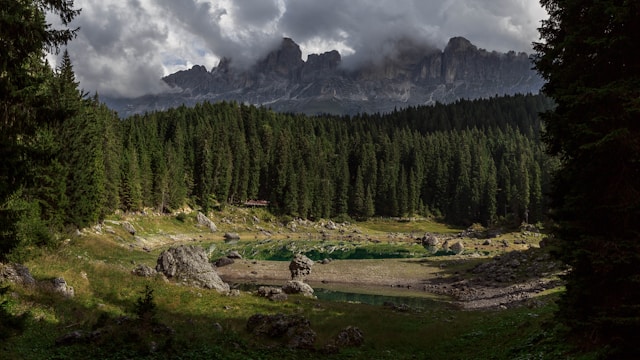ECO friendly way to prevent cloudy dishes
Have you ever pulled dishes out of the dishwasher, only to find them covered in a cloudy film instead of being crystal clear? It’s frustrating, especially when you expect your dishes to sparkle. This cloudiness often results from hard water, soap residue, or improper cleaning techniques. While many turn to chemical-laden solutions, there’s an eco-friendly way to prevent cloudy dishes that protect both your health and the environment.
In this article, we’ll explore various natural and eco-friendly fixes that can help you restore your dishes’ shine without resorting to harsh chemicals. These methods are not only effective but also sustainable, making them a win-win for both your kitchen and the planet.
Why Do Dishes Get Cloudy?
Before diving into the solutions, it’s essential to understand why dishes become cloudy in the first place. The primary culprits are:
- Hard Water: When water is rich in minerals like calcium and magnesium, it leaves behind deposits that can make dishes look dull and cloudy.
- Soap Residue: If too much detergent is used, or if it doesn’t dissolve properly, it can leave a filmy residue on your dishes.
- Etching: Over time, harsh chemicals can erode the surface of glassware, causing permanent cloudiness.
Knowing the cause allows us to choose the best eco friendly way to prevent cloudy dishes without harming the environment.
1. White Vinegar: The Miracle Worker
One of the most effective and natural solutions for cloudy dishes is white vinegar. It’s a safe, non-toxic option that’s available in most homes and works wonders in breaking down mineral deposits.
How to Use Vinegar:
- Add 1 cup of white vinegar to your dishwasher during the rinse cycle. This helps to eliminate mineral buildup from hard water.
- For hand-washing, soak cloudy glassware in a basin filled with equal parts vinegar and warm water for 10-15 minutes. Then, scrub with a soft sponge to remove the cloudy film.
Vinegar is a powerful yet gentle cleaner, making it the ultimate eco friendly way to prevent cloudy dishes.
Personal Story: I used to struggle with cloudy glasses until a friend suggested using white vinegar. I was skeptical at first, but after soaking my dishes in vinegar and running the dishwasher, they came out sparkling clean! Now, I always keep a bottle of vinegar under my sink for this eco-friendly fix.

2. Baking Soda: A Natural Scrubber
Another excellent eco friendly way to prevent cloudy dishes is by using baking soda. This natural, non-toxic product acts as a gentle abrasive, making it perfect for tackling cloudy glassware without scratching it.
How to Use Baking Soda:
- Make a paste with baking soda and a small amount of water. Use a soft sponge to gently scrub cloudy dishes, especially glassware, before rinsing thoroughly.
- You can also sprinkle baking soda into the dishwasher along with your detergent to boost cleaning power and reduce soap residue.
Baking soda is safe for the environment and an easy, cost-effective solution for preventing cloudy dishes.
3. Lemon Juice: Nature’s Cleanser
Lemon juice is a fantastic eco friendly way to prevent cloudy dishes due to its natural acidity. It helps to dissolve mineral deposits and leaves your dishes with a fresh, citrusy scent.
How to Use Lemon Juice:
- Add a few tablespoons of lemon juice to your dishwasher’s rinse aid compartment or directly into the bottom of the dishwasher before running a cycle.
- For hand-washing, mix lemon juice with warm water and use it as a natural rinse for glassware.
The citric acid in lemon juice effectively breaks down mineral buildup and leaves dishes shining, all without the need for harsh chemicals.
Expert Opinion: “Citrus fruits like lemons contain natural acids that are great at removing stubborn mineral deposits from glassware,” says Dr. Jane Collins, a sustainable home expert. “Using lemon juice is an excellent eco-friendly way to prevent cloudy dishes while keeping your cleaning routine green and toxin-free.”
4. Reduce Detergent Use
Many people mistakenly believe that more detergent equals cleaner dishes. However, using too much detergent can lead to soap buildup, which is often the cause of cloudy glassware. To prevent this, try cutting back on the amount of detergent you use.
Tips for Reducing Detergent:
- Use half the recommended amount of detergent, especially if you have soft water. This helps avoid excess soap that can leave a film on your dishes.
- Look for eco-friendly detergents that are free from harsh chemicals and better for the environment. Many of these detergents are designed to work effectively with less product.
By reducing your detergent usage, you’ll not only prevent cloudiness but also reduce the amount of chemical runoff entering our waterways, making this an all-around eco-friendly choice.
5. Install a Water Softener or Use a Rinse Aid
Hard water is one of the main reasons dishes become cloudy. Installing a water softener can help to reduce the mineral content in your water, which in turn prevents those mineral deposits from settling on your dishes.
If a water softener isn’t an option, you can use a natural rinse aid like white vinegar to combat hard water. Rinse aids work by helping water evaporate more quickly, leaving behind fewer minerals that cause cloudiness.

Benefits of Water Softeners and Natural Rinse Aids:
- Water softeners reduce the mineral content in water, preventing cloudiness from the start.
- Using vinegar as a rinse aid is a simple and eco-friendly way to ensure your dishes come out sparkling.
6. Avoid High Heat Settings
While it may seem counterintuitive, using the highest heat settings in your dishwasher can contribute to cloudy dishes. Extremely hot water can cause soap to dry too quickly, leaving behind a film. It can also cause etching on glassware over time.
Tips for Temperature Control:
- Use the energy-saving or eco-mode on your dishwasher, which uses lower temperatures and less energy while still getting your dishes clean.
- Avoid pre-rinsing your dishes, as modern dishwashers are designed to clean better when food particles are present, reducing the need for higher heat.
This approach not only saves energy but also offers an eco-friendly while extending the life of your glassware.
7. Switch to Eco-Friendly Dishwashing Detergents
Many conventional dishwashing detergents contain chemicals that can leave residue on your dishes, contributing to cloudiness. Switching to eco-friendly detergents can help prevent this issue while also being better for the planet.
Why Choose Eco-Friendly Detergents:
- Biodegradable Ingredients: Eco-friendly detergents break down naturally and don’t contribute to water pollution.
- No Harsh Chemicals: These detergents are free from phosphates and sulfates, which can cause soap buildup on dishes.
- Effective in Low Doses: Most eco-friendly detergents are designed to work effectively in smaller amounts, reducing the risk of cloudy residue.
By making the switch to an eco-friendly detergent, you’ll have an easy, eco friendly way to prevent cloudy dishes while supporting sustainable products.
FAQs: Eco-Friendly Solutions for Cloudy Dishes
Q1: What is the best eco friendly way to prevent cloudy dishes? A: The best eco-friendly solutions include using white vinegar, lemon juice, or baking soda to remove hard water stains and soap residue.
Q2: Can hard water cause dishes to become cloudy? A: Yes, hard water is a major cause of cloudy dishes due to the mineral deposits left behind during washing.
Q3: Is vinegar safe to use in the dishwasher? A: Absolutely! Vinegar is a natural, non-toxic cleaner that helps to remove mineral buildup and soap residue from dishes.
Q4: How can I prevent cloudy dishes without using chemicals? A: You can use natural solutions like vinegar, lemon juice, and baking soda, as well as reducing detergent usage and using eco-friendly products.
Q5: Will reducing detergent use make my dishes less clean? A: No, using the correct amount of detergent (which is often less than you think) can prevent soap residue and still leave your dishes clean and sparkling.
